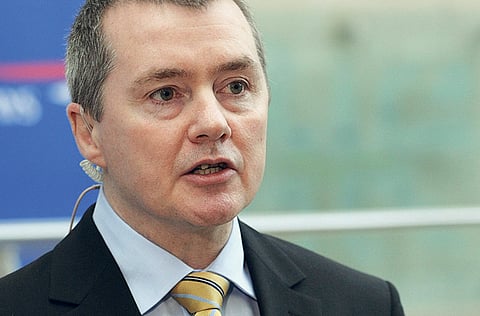Dubai Air show will not see any “significant” aircraft orders this time, says IATA’s Willie Walsh
Walsh also said high oil prices could let to a surge in air fares in the short term

Also In This Package
There might not be much in terms of large aircraft orders at the upcoming Dubai Air show. This is according to Willie Walsh, Director-General of International Air Transport Association (IATA).
“I’m not aware of any major announcements that are likely to be made and certainly the CEOs that I’ve spoken to have taken a cautious approach,” said Walsh, during a media briefing on Wednesday.
Walsh said that airlines may make some purchases, given that operators retired many aircraft during the pandemic. They will “need to start rebuilding their fleets as we start rebuilding international travel”
“I’m not aware of any significant developments and certainly neither Boeing or Airbus have indicated anything at this stage, but there are always some surprises at these air shows,” said Walsh.
The event, which is scheduled for November 14-18, will be the largest aerospace trade event to be held since the pandemic, with the cancellation of European shows Farnborough and Le Bourget in 2020 and 2021, respectively.
The 2019 edition of the event wrapped up with a total of $54.5 billion in deals and record attendance. Of those sales, Emirates and Air Arabia alone accounted for $38.8 billion in deals (or 71 per cent). Emirates airline made aircraft orders worth a total of $24.8 billion at the Air Show, while Air Arabia made an order for $14 billion as both airlines plot their future fleets and strategies.
High fares
Airlines fares, which are already on the higher end due to fewer flights, may even go up further due to the recent spike in oil prices. “The issue that’s going to impact on fares in the short-to-medium term will be the high price of oil which continues to remain stubbornly high,” said Walsh.
This will result in airports and air traffic increasing their charges, said Walsh. “The industry has no choice but ultimately to reflect these increase costs in ticket prices - the supply and demand situation is reasonably balanced”
Air travel demand
IATA announced a moderate rebound in air travel in September 2021 compared to August’s performance. This was driven by recovery in domestic markets, in particular China, where some travel curbs were lifted following the COVID-19 outbreaks in August. International demand, meanwhile, slipped slightly compared to the previous month.
Total demand for air travel in September 2021 - measured in revenue passenger kilometers or RPKs - was down 53.4 per cent compared to September 2019. This marked an uptick from August, when demand was 56 per cent below August 2019 levels.
Meanwhile, domestic markets were down 24.3 per cent compared to September 2019, a significant improvement from August 2021, when traffic was down 32.6 per cent versus two years ago.
“September’s performance is a positive development but recovery in international traffic remains stalled amid continuing border closures and quarantine mandates. The recent US policy change to reopen travel from 33 markets for fully vaccinated foreigners from November 8 is a welcome, if long overdue, development,” said Walsh.
“Along with recent re-openings in other key markets like Australia, Argentina, Thailand, and Singapore this should give a boost to the large-scale restoration of the freedom to travel,” he added.
Sign up for the Daily Briefing
Get the latest news and updates straight to your inbox









